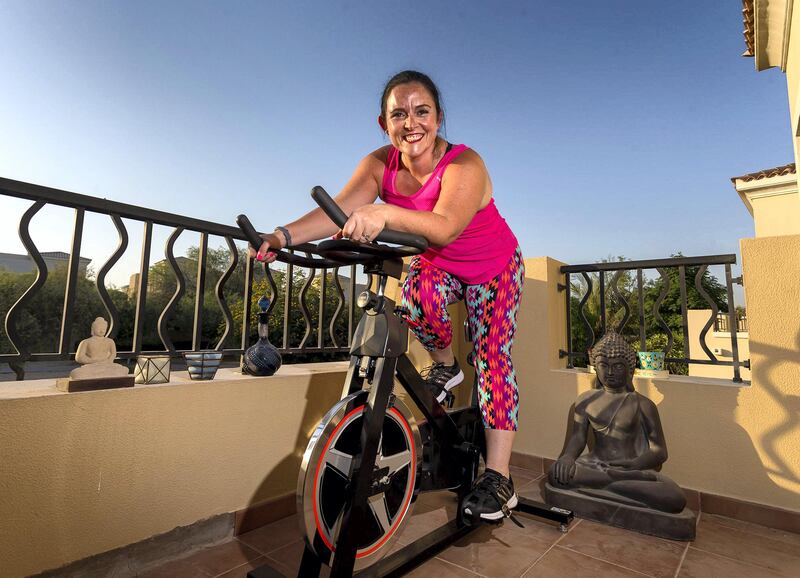The infamous “Dubai stone” has become notorious among expatriates in the UAE as many get sucked into life in the fast lane and often pile on extra weight within months.
More eating out, socialising to meet new people and long working hours that sees gym time take a hit are often the root cause, but some could be putting their long-term health at serious risk.
“This worrying level of diabetes in expats living in the Middle East and Africa is in part a symptom of an imported Western lifestyle and modern sedentary work,” said Dr Mitesh Patel, medical director at Aetna International.
“Once expats relocate they can be exposed to increased access to unhealthy fast food and less active ways of working, which may not have been the case in their home country.
“The diabetes burden is getting worse, not better in the Mena region – putting growing pressure on healthcare providers and, in turn, the healthcare insurance industry.
“Ultimately, this means increasing health insurance premiums, which no one wants.”
Diabetes has become a mounting health issue for the UAE, with some of the highest rates in the world, ranking 16th globally for prevalence.
According to the International Diabetes Federation, in 2015 almost one in five people living in the UAE had type 2 diabetes.
Government education plans on healthy eating and lifestyle changes to reduce those numbers from current levels of about 19 per cent of the population.
The average global figure is 8.3 per cent, with men aged 55 to 59 most at risk.
Diabetes is placing huge economic strain on health providers, governments and insurers – but early detection and disease management, as well as strong prevention programmes, that cost can be reduced.
In some cases, with careful and often drastic lifestyle alterations, type 2 diabetes can even be reversed.
British expat Rhian Lindley piled on more than 50kg after moving to Dubai over the course of a few years.
She decided to make drastic lifestyle changes after being shocked at a diabetes diagnosis, the biggest of which has been cutting all sugar from her diet.
Her weight had ballooned to about 110kg but now, with regular exercise and a sensible diet, she has lost 27kg and is on course to lose a further 15kg by November.
Mrs Lindley, 41, now blogs about her progress to inspire other diabetics and anyone with lifestyle-related health conditions that they too can change.
“I became trapped in a cycle of binge eating,” said Mrs Lindley, from Wales. “I tried to counter that with exercise but just got fatter. It got to the point where I was treating my depression by eating.”
After the diabetes diagnosis, she vowed to change her life.
“I got a health coach and personal trainer and read books on how to reverse diabetes - I educated myself on the science of nutrition with books and documentaries,” said the trained opera singer.
“Doctors just accepted the diagnosis, and never mentioned it was something I could reverse if I changed my diet and did more exercise. They were amazed.
“People need to recognise they must take responsibility for their health.
“For five months now I have changed my relationship with food. I am learning about the nutritional aspects of food – the healing aspects of food – learning not to reward or punish myself with food, and learning how to live a healthy lifestyle. I am refocusing on my growth, my self-esteem and my happiness.
“I’m a different person. My husband says he’s got back the person he married.”
Diet dos and don'ts for diabetics
Although there is no special diet for diabetes, or those with pre-diabetes, health experts advocate some important guidelines to follow.
Doctors in the UAE and experts at Diabetes UK recommend diabetics eat a healthy, balanced diet, low in fat, sugar and salt, with a high level of fresh fruit and vegetables.
Those with diabetes are also encouraged to increase the amount of fibre they eat, and reduce levels of fat, and in particular saturated fats.
Vegetable oils, reduced fat spreads, oily fish and avocados are good sources of preferred unsaturated fats required for a balanced diet.
Meat and dairy products should not be avoided altogether, particularly for those with type 2 diabetes, as this can lead to poor blood glucose control, which can lead to unexplained weight loss, fatigue and blurred vision.
Low fat dairy produce is advised, and to best manage diabetes people should avoid sugary and fatty snacks such as crisps, biscuits, cakes and pastries, switching to fruit, unsalted nuts and low-fat yogurt instead.
Ideally, those with diabetes should be aiming to eat less than 6g of salt daily and aim to take on board between 1.6 and 2 litres of fluid every day – depending on time spent outdoors in the heat.






